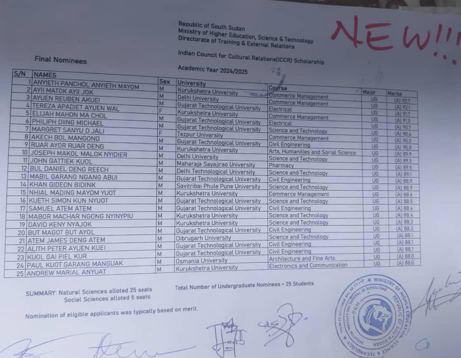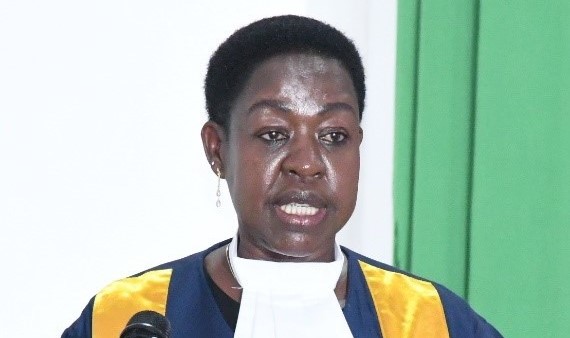South Sudan’s parliament will review new scholarship nominations for students before they are made public, following allegations of ethnic favoritism in a recent selection process for fully-funded study opportunities abroad.
The decision by the Transitional National Legislative Assembly (TNLA) comes after public outcry over the Ministry of Higher Education’s selection of 30 students for scholarships to India, with critics claiming the majority of beneficiaries came from a single ethnic group.
The controversy erupted last month when the ministry released the list of recipients under the Indian Council for Cultural Relations (ICCR) scholarship program. Officials defended the selection as merit-based, but media backlash forced lawmakers to intervene.
Jemma Nunu Kumba, Speaker of the TNLA, said she summoned the Director of Scholarships and other education officials to her office on Tuesday to explain the criteria used.
“This issue was raised to my office by so many students,” Kumba said. “Yesterday, we had a meeting with the chairperson of the higher education program, a student representative, and the minister in my office to explain the India scholarships.”

According to Speaker Kumba, the ministry said the scholarships were privately funded and required nominees to score between 80 and 90 grades. “In his explanation, he made it clear those scholarships are private and not government. He said the condition of the nomination was based on performance and merits,” she said.
The higher education minister reportedly admitted to procedural errors, citing pressure during the selection process. Kumba noted that most states and administrative areas were excluded, with only two women selected. “What is important is that he has acknowledged his mistake because they rushed the selection, which resulted in other states being left out completely,” she said.
However, critics dismissed the explanation as insufficient. Farouk Gatkuoth Kam, chief whip of the opposition SPLM-IO, accused the ministry of tribalism and demanded a full parliamentary inquiry.
“His explanation to me and other viewers is not enough. This is mere tribalism being practiced in broad daylight,” Gatkuoth said. “We can’t let it go like that. The minister must be summoned.”
He criticized the lack of a strong response from the TNLA speaker, saying, “What we watched on TV last night, there were two things missing: you summoned the minister, he came, he spoke, the student representative spoke—but we expected your statement.”
Stephen Bol Lay, an MP representing Mayom County, echoed the demand for transparency, stating that the scholarship list lacked diversity. “If you look carefully at that list, diversity was not considered,” he said.




